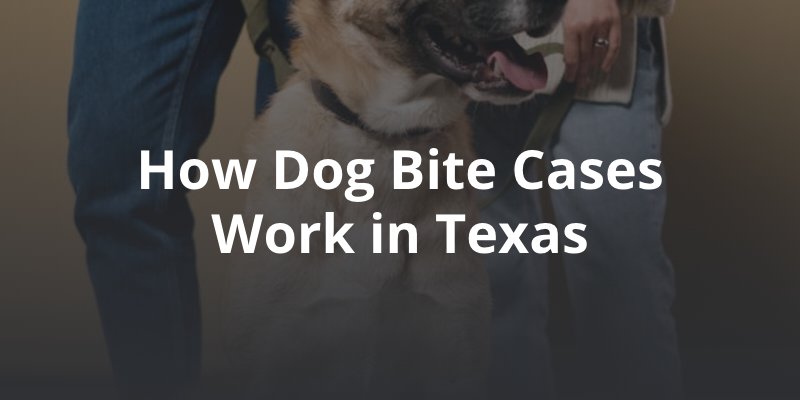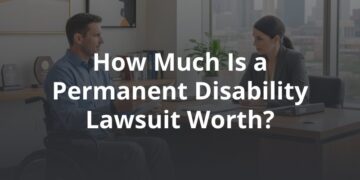
If you get bitten by a dog, you may sustain serious injuries that will leave permanent physical and emotional scars. In Texas, pet owners can be held responsible for injuries caused by their dogs. Under Texas’s premises liability laws, however, you may also be able to hold the owner or controller of the property where the attack took place responsible for your losses.
What Are Texas’s Dog Bite Laws?
There are two main laws when it comes to dog bite injuries: strict liability and the one-bite rule. Texas is not a strict liability state. In strict liability states, dog owners are held liable, or legally and financially responsible, for injuries caused by their dogs, regardless of whether they had reason to know that the dog had vicious propensities.
Instead, Texas uses a one-bite rule, combined with general negligence laws and premises liability laws. The one-bite rule states that a dog owner (or controller, such as a pet sitter) can be held liable for a dog bite injury if they knew that the dog had previously bitten someone before or acted aggressively. Previous bite incidents place a responsibility on a pet owner to prevent further harm by the dog. The failure to do so can expose the pet owner to liability in a dog bite injury claim.
Negligence-Based Dog Bite Claims
If the one-bite rule does not apply to a case, a dog owner could still be held responsible through a negligence claim. If a pet owner is negligent, or fails to exercise reasonable care in the control of their dog, they could be held liable for injuries caused by that dog. Examples of pet owner negligence include violating local leash laws, failing to properly restrain the dog and allowing the dog to run at large.
When Can a Property Owner Be Held Liable for a Dog Bite Injury in Texas?
A pet owner is not the only party that could potentially be held responsible for a dog bite injury in Texas. Premises liability laws may also apply, depending on the circumstances. If a dog attacks someone on private property, the victim may have grounds to sue the owner or controller of the property for failing to maintain a safe premises, as the law requires.
Texas’s premises liability laws impose a legal obligation on property owners and occupiers to maintain a safe environment for lawful visitors. If a property owner owns a dog, this responsibility extends to making sure the dog does not pose a threat to invited guests. If the owner knew or should have known that a dog presented a risk of harm but failed to prevent an attack, the owner could face a premises liability claim.
What Must Be Proven in a Dog Bite Premises Liability Case?
To win a premises liability case as a dog bite victim in Texas, you or your Austin personal injury attorney must show evidence of the following elements:
- The defendant owned, leased or controlled the property where the incident occurred.
- The defendant had knowledge that the dog was dangerous or aggressive.
- The defendant failed to take reasonable action to prevent the injury or secure the dog.
- This act of negligence caused your dog bite injuries.
The burden of proof is a preponderance of the evidence, meaning the evidence must show that the defendant is more likely to be at fault for the dog attack than not.
Can I Sue a Landlord for a Dog Attack in Texas?
Texas’s premises liability laws extend to a landlord as the person currently in control of a piece of property. If you were attacked by a dog while on a rental property that was controlled by a landlord or property management company, you may be able to hold this party responsible for your injuries and losses.
A claim against a landlord must prove that he or she knew of the danger presented by the aggressive dog but failed to prevent an attack; for example, if a landlord knowingly allows a tenant to harbor a dangerous dog. If an aggressive dog was at the rental property without any warnings or control measures, a premises liability case could be brought against the landlord for a subsequent dog attack.
Common Defenses to Dog Bite Liability Claims
When a dog bite injury claim or premises liability lawsuit is filed against an individual in Texas, he or she has the right to present one or more defenses against liability. Common defenses include:
- No prior knowledge: the defendant was unaware of the dog’s aggressive or vicious behaviors.
- Trespassing: the victim was unlawfully on private property at the time of the attack.
- Provocation: the victim provoked the dog or instigated the attack.
- Comparative negligence: the victim contributed to the attack and is partially at fault
- Assumption of risk: the victim knowingly assumed a risk of injury by interacting with the dog.
- Warning signs: the property owner had a “Beware of Dog” sign posted on the premises.
- Immunity: dogs performing official duties, such as police dogs, may be exempt from liability.
Whether or not these defense tactics are effective depends on the circumstances, as well as your preparedness heading into the injury claims process. Hiring an attorney to represent you can allow you to counteract common defense strategies.
Steps to Take After a Dog Bite Injury in Texas
If you wish to file a premises liability case following a serious dog attack in Texas, it is important to take the right steps to protect yourself and build your claim. If you can, here’s what to do:
- Get immediate medical attention. Delaying medical care is dangerous for your physical health and can give an insurance company a reason to reject your claim.
- Gather information. Document everything you can about the attack, from the dog owner’s contact information to photographs of your injuries.
- Report the dog bite injury. Contact the police in an emergency. Otherwise, report the dog bite to your local animal control authority to put it on the record.
- File an insurance claim. Call the pet or property owner’s insurance company to file your injury claim. Don’t admit fault or give them a recorded statement.
- Consult with an attorney. Before you accept a settlement, contact a dog bite injury lawyer in Texas to review your rights and legal options in detail.
As soon as you contact an attorney, he or she can take over your dog bite injury claim for you to make sure that everything is in order. Your lawyer will connect you to top doctors in your area and take care of complex legal processes while you focus on healing from your injuries.
To discuss a particular dog bite injury case with a knowledgeable attorney during a free and zero-pressure legal consultation, contact FVF Law Firm 24/7.








